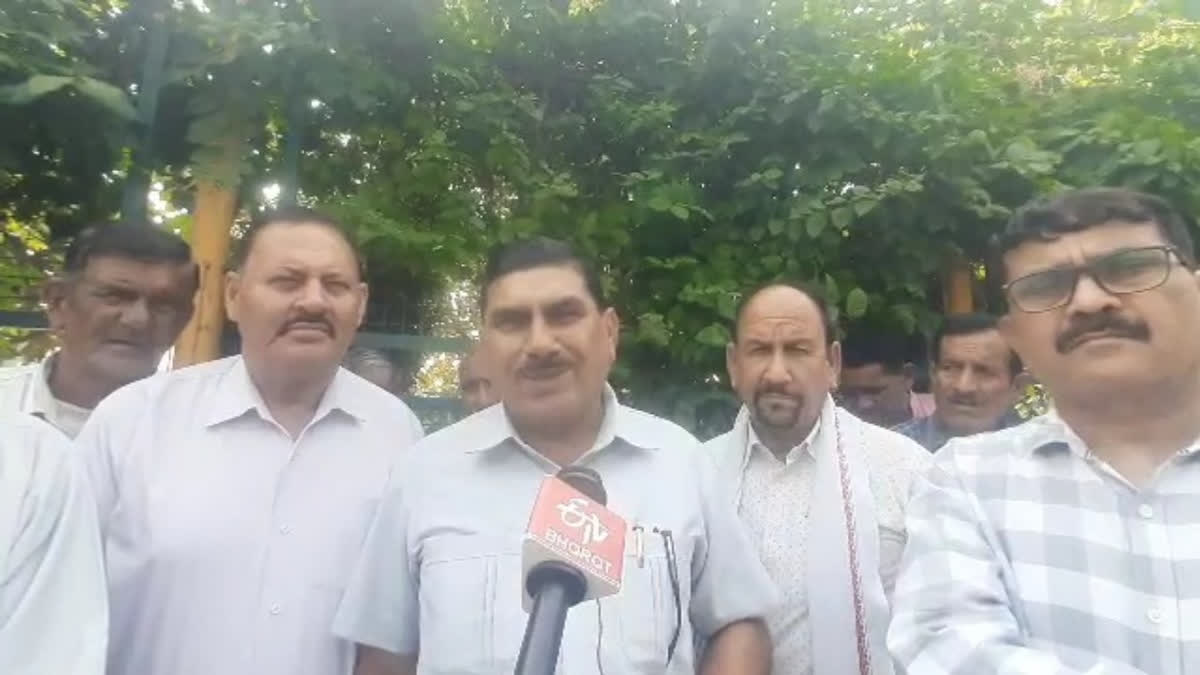Jammu: In Jammu and Kashmir, the debate over restoring special status is stirring emotions across communities, especially among the Gorkhas, Valmikis and West Pakistani refugees, communities who gained long-denied rights after the abrogation of Article 370 on August 5, 2019. Although the end of special status offered them new opportunities, they have seen only partial benefits, leading to both gratitude and frustration.
ETV Bharat sat down with community leaders and members to hear their stories of struggle, resilience, and guarded optimism:
For Meena Gill, an activist with the Valmiki Samaj, the repeal of Article 370 brought life-changing rights that had long eluded her and her family. “After the abrogation, we were finally granted citizenship here. This is something our forefathers never experienced,” she said, recounting that her ancestors were brought to Jammu in 1957 from Punjab to work as sanitation workers. “For 67 years, we were treated as outsiders, despite the essential services we provided,” she added, her voice a mix of pride and disappointment. Although Valmikis now hold the status of citizens, she fears that the resolution to restore special status could threaten the newfound recognition they have only just begun to enjoy.
Reflecting on her community’s history, Gill recounted that without the Permanent Resident Certificate (PRC) required before 2019, Valmiki youth couldn’t even apply for basic jobs within Jammu & Kashmir. “Even though we were brought here by the state government, we were never given the rights of citizens,” she explained. For the Valmikis, the lack of a PRC was a reminder of their 'outsider' status, with limited access to jobs, property, and social benefits that other residents took for granted.
Gill’s own story highlights the struggles her community faced. Before the abrogation, she couldn’t dream of pursuing a career outside of traditional roles. “Today, I am studying law, something I wouldn’t have thought possible just a few years ago,” she stated. However, she says that only a fraction of the promised benefits have been realized. “If I had to estimate, we’ve seen only about 20 percent of the opportunities we hoped for,” she added. For her, full rehabilitation of the Valmiki community is a priority, a goal she hopes the government will keep in mind over restoring special status.
The Valmiki community’s contributions to the state’s sanitation and welfare have come at a high personal cost. “Our families are still housed on the two marlas of land allotted back then, with no expansion. We couldn’t buy more land because we weren’t considered permanent residents,” she explained, appealing to the government to continue prioritizing development and infrastructure for her community rather than focusing on the restoration of Articles 370 and 35A.
On the other hand, Labha Ram Gandhi, the president of the West Pakistani Refugees Association, says, the removal of Article 370 allowed his community, which had been relegated to second-class status since Partition, to finally access voting rights and other civic benefits. West Pakistani refugees settled in Jammu, Kathua, and Rajouri districts, but for decades, they lived as 'outsiders,' denied even basic citizenship rights despite their contributions to the region. “The leaders know well that Article 370 and 35A cannot come back, but the resolution was a promise made during elections,” he stated, voicing his unease at what he sees as an attempt to turn back progress.
For Gandhi, the abrogation of Article 370 has provided significant, though incomplete, gains. The government has issued domicile certificates, allowing West Pakistani refugees to claim equal rights within J&K, and the administration has promised more land allocations and compensation for families displaced since 1947. “Our people suffered in silence for over 70 years,” he said. “Although we’ve seen improvements, some matters, like the land issue, are still pending,” he added, expressing hope that the administration will follow through on these promises without reintroducing divisive policies.
He also suggests that a provision like Article 371, which protects local interests in other Indian states, could be more effective than a return to special status. “Restrictions on job and land opportunities for non-locals could help J&K, without undoing the progress we’ve achieved,” he explained. Gandhi is optimistic that recent discussions in the Supreme Court will prevent any backsliding on his community’s rights.
Before 2019, these communities faced decades of marginalization and lacked access to basic civil rights. West Pakistani refugees, who fled to Jammu during the violence of Partition, were denied residency status, which severely limited their economic prospects. Valmikis, similarly, were essential to the state but restricted to menial work and lacked any path to social mobility. Both communities lived as outsiders in their own homes, contributing to the region’s labour and culture but receiving little recognition in return.
The sentiments of these communities reveal deep concerns about the political future of Jammu and Kashmir. For them, the promise of a unified nation where 'one law applies to all' represents an end to long-standing injustices. As Jammu and Kashmir’s Assembly debates the future of Article 370, their voices provide a crucial perspective—one that speaks to the hope for an inclusive, democratic future in the region.
In Gandhi’s words, “We aren’t asking for special treatment, just fair treatment.” As Jammu and Kashmir look to the future, these communities are watching closely, hoping that the path forward honours the sacrifices of the past without unravelling the hard-won progress they have finally begun to enjoy.
Read More



